.
.
GREEN ZONE
review by Gary Murray
The “Green Zone” refers to the safe area of Iraq, the place were the government is most secure. In the movie of the same name, the title takes on much more of a ironic tone.
Matt Damon plays Miller, an army man with a problem. It is four weeks after the 2003 invasion of Iraq and his crew is tasked with finding and destroying the WMDs. There is only one slight problem – he cannot find any. Every time the patrol goes to a proposed site, there is no sign of any weapons ever being stored anywhere. Miller begins to figure out that the intelligence on the sites just has bad information. He begins to question if the reason for going to this war is incorrect, and starts a separate investigation into who is providing the information on the sites. All their intelligence comes from a mysterious figure referred to as Magellan.
On the other side of the plot, a group of generals is planing how to take control in post-Saddam Iraq. They know that the Americans have no idea about the different factions that make up the country, and that only a strong local military command can control the populations that have generations-old blood feuds. The generals think that eventually the US will realize that Iraq needs them to keep order.
Miller meets Freddy, an Iraqi who notices the general’s meeting. Freddy is drafted into translating for Miller. Miller confronts the generals in a blaze of gunfire. Our hero believes that the head general is involved with the conspiracy of Magellan.
Miller’s investigation leads him to a female reporter and an Administration Aide, both who have a relationship that goes past the fourth branch of government. Also in the mix is a CIA agent who wants to know exactly who is telling what to whom. The only surprises in Green Zone will be for those who have been in a coma for the last decade… everyone knows the WMD story.
Matt Damon becomes a cross between John Wayne and Clint Eastwood with his portrayal of Miller. We get the stoic nature of those two action heroes of yesteryear while still putting a modern side to the macho facade. We get a mesh of a traditional male with something softer around the edges. Call him a hero for the times. On the flip side of the the coin is Greg Kinnear. His is such a simple role without any enigma or mystery. Over the years, we have seen this character again and again.
As our CIA agent, Brendan Gleeson gives an honest reading. He’s the character who has been duped just as much as Miller, just on the opposite side of the same equation. His frustrations seem that much more personal.
Amy Ryan plays the reporter, Lawrie, and is one of those pivotal “blink and you miss it’” roles. She is the fulcrum of the plot but only has a few scenes becoming more of a means to an end than a fully developed character. The world of Green Zone is very much a man’s world.
Khalid Abdalla, the actor who plays Freddy resonates the most in Green Zone. He is the odd man out, a former soldier of honor thrown into an untenable situation. We feel his pain as he sees his country destroyed from all sides. The ending with his character is justified in its obtuse way.
The element that I hated the most in this film was the choice to make it feel like a documentary. With a jilting and bouncing camera, the effect was to give the film a ‘being there’ quality. But with all the jostling, Green Zone feels like a war zone Paranormal Activity. More than once, I had to shut my eyes to fight off the effects of motion sickness even though I never moved from my seat. The style does work, to set a mood on a small screen, but for a major motion picture it becomes a ‘little pink bottle’ moment more than once. Director Paul Greengrass who worked so well with Damon on the Bourne films just doesn’t bring his A game here.
There has been movie after movie tying to capitalize on the current war. Almost all have been anti-war and almost all have been massively unsuccessful. As an entertainment Green Zone almost works, but as a statement of policy, it lacks. The performances overshadow the story.
.
.
GREEN ZONE
reivew by Steve Friedel
NOTE TO CONSERVATIVES, LOVERS OF GOOD FILM WRITING, AND FANS OF THE SLOW-MOVING CAMERA: Don’t go see Green Zone, plain and simple. “Why?” you may so emphatically ask? ‘Cause here’s the skinny: Chief Warrant Officer Roy Miller (Oscar nominee for last year’s Invictus, Matt Damon) is a fictitious (or at least loosely based on a real guy) U.S. soldier stationed in Iraq in 2003, and days before the official dissolution of Saddam’s Ba’ath Party dictatorship. Miller’s leader of an elite team sent into pre-vetted areas to locate Weapons of Mass Destruction (WMDs) in order to give credence to why went over there in the first place. But wouldn’t ya know it? Miller keeps coming up empty, and he begins to suspect all the intel — especially from a mysterious source code-named “Magellan” — is bogus, and the existence of Hussein’s WMDs may be… DUNH, DUNH, DUUUUUH… falsified! In more than a few instances of pontification (bordering on insurrection), Miller (but probably more Damon, considering where the actor falls on which side of the fence) loudly exclaims “This is the whole reason we’re over here! Where the hell are these weapons?!” It’s enough to drive him to hook up with the CIA (in the form of Beowulf‘s Brendon Gleeson) because it’s made apparent they KNOW something more than what the Department of Defense (lead by A Flash of Genius‘s Greg Kinnear) does. Miller spends the rest of the movie yelling, running (a lot), rifle-cradling, ducking, and finger-pointing in an attempt to discover the person behind “Magellan”. Meanwhile, the last batch of Hussein loyalists — lead by scary-looking Geenral Al Rawi (Igal Naor, who happened to play the role of Saddam in HBO’s miniseries “House of Saddam” in 2008) — are scurrying around the maze of Baghdad evading a covert operation set up by the DoD, and waiting for a deal to be struck with the U.S. or instigating the first strike of an insurgency. If there is any basis in fact for the story, you can easily guess how badly this is going to turn out.
What’s good (and/or marginally good) about it? The fact that director Paul Greengrass (together with photography director Oliver Wood, was the unsteady hand behind the last two Bourne movies; anyone get as nauseated as I did watching these?) relegated his action cam control to the much-more-adept-at-the-skill Barry Ackroyd — the guy behind the camera for the newly-crowned Best Picture winner The Hurt Locker — was a very good idea. Yes, the camera does shake — and violently at times — but it’s at least controlled shaking with just enough instances of stillness. The action sequences — gun battles, bounty hunts, etc. — feel genuine and tense (though some scenes, including the last one, tend to get a bit excessive in time); nowhere near as good as Locker, but still honorably worth a mention. Damon does a decent job with the headstrong, well-intentioned soldier, but the role itself gets more than mildly preachy at pivotal points.
The not-so-good? Surprisingly (or not), the script is written by Brian Helgeland, who won an Oscar for L.A. Confidential (1997). But, admittedly, his work here (based on the non-fiction novel “Imperial Life in the Emerald City: Inside Iraq’s Green Zone” by Rajiv Chandrasekaran) continues a steady decline from his Oscar-nominated screenplay for Mystic River in 2003. Perhaps it’s the lousy source material, but there’s not much of a point to make, not much punch while making the point, stiff as a waterboard, and takes itself far too seriously.
But the overall problem with Green Zone — one that completely detracts from what may have been a decent action flick — is… I can’t figure out what this film is supposed to be about. If the story’s anywhere near fact-based, then it’s delusional, revisionist history that makes a feeble, glossed-over attempt to explain away the central reason we ACTUALLY never found any WMDs; is this what the filmmakers are trying to convince me of? That this whole situation was as black and white as it’s made out to be? Somehow, I highly doubt this polarizing issue is just that simple. In fact, when two of the main characters criticize each other for being “naïve”, I immediately thought, “You’re tellin’ me!”
On the other hand, if this is supposed to be closer to a work of fiction, then 1) it’s about seven years too late for anybody to care and 2) it doesn’t exactly do much justice to the people over there who are hip-deep in sh*t right now (Americans and Iraqis alike) by turning a VERY REAL CONFLICT into a work of politically-leaning grand-standing and fabrication. At the very least, it’s disrespectful; at worst, it’s down-right insulting.Seven years removed, the whole “Were there or weren’t there WMDs?” argument — while still a relevant issue in some circles (in spite of what some officials have fought to circumvent) — is pretty much a beaten horse (and perhaps that’s the kind of thinking that was being promoted and encouraged all along… move along, nothing to see here). Unfortunately, I personally would even go so far as to contend the “WMD discussion” is completely irrelevant at this juncture (the cynic tells me no one’s going to be held accountable anyway so why bother?); in fact, that’s the way the whole movie feels quite frankly. We’re in Iraq, we’ve been there since 2001, and we’re closer to on our way out than in. I guess it’s possible there could be some renewal of the debate — probably 20-30 years from now when historians are finalizing the textbooks and encyclopedias — but Green Zone certainly doesn’t contain enough of the substance and depth I think it thinks it does to revive it.


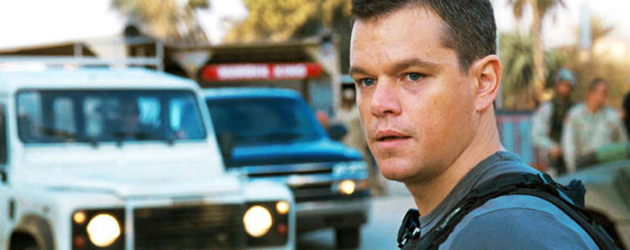
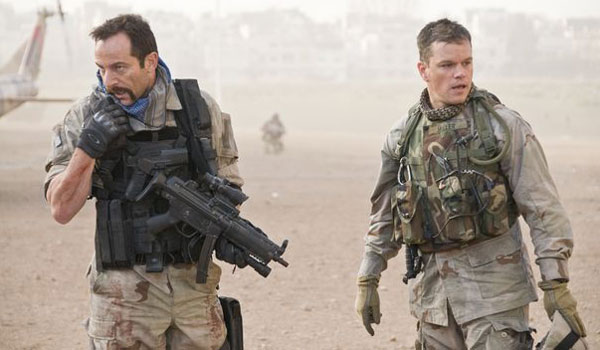
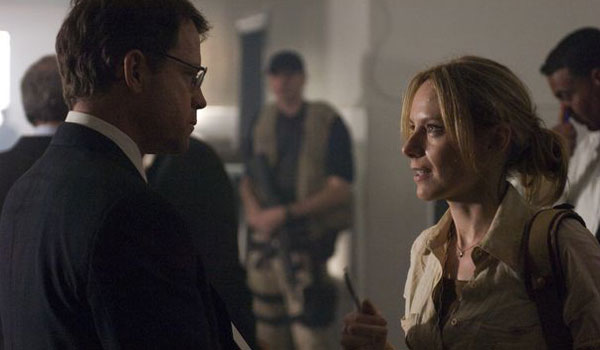
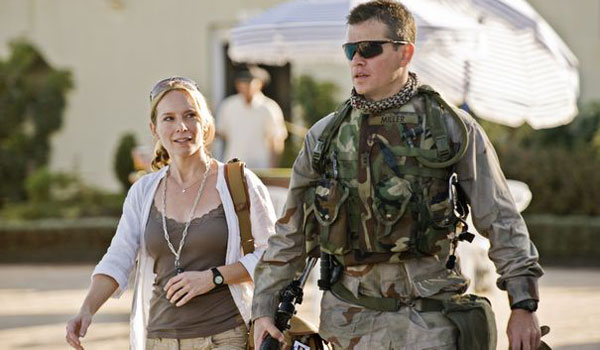
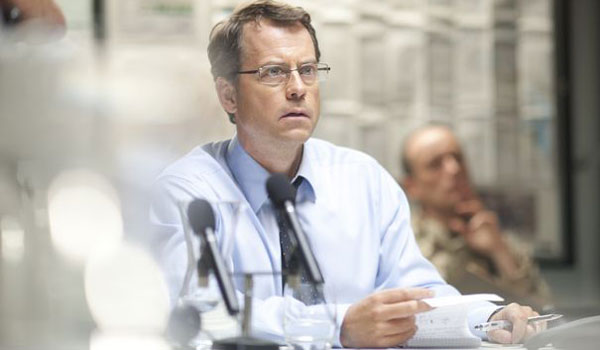




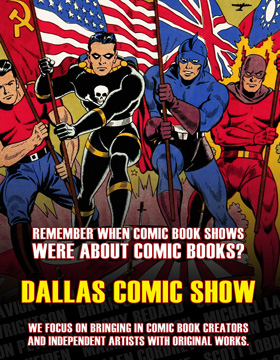
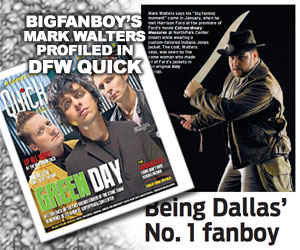
you should keep your political opinions out of your review. Fact is is Cheney used a predetermined intelligence report that the CIA didn’t even agree with stating there were WMD’s in iraq and this story parrallels that lie well enough using Magellan to be true to the nature of the situation.
but yeah the camera work was overdone Hurt Locker did it much better
I agree with rick. As a critic of the film, this is a really bad job done…You’re suppose to review the movie and not state your political views… Better luck next time 😉
Ciao